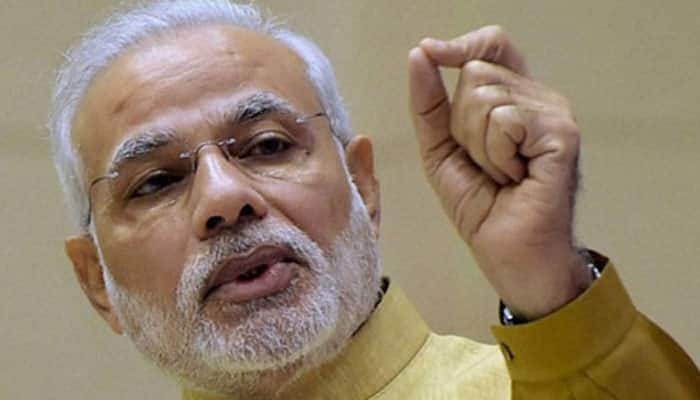New Delhi: Climate change is a "pressing" global challenge and the poor people are "most adversely" affected by it, Prime Minister Narendra Modi Thursday said and suggested a shift of the discourse on the issue from "climate change to climate justice."
"In my view, the most adversely affected by climate change are the poor and the downtrodden. When a natural disaster strikes, they are hit the hardest. When there are floods, they are rendered homeless. During a quake, their homes are destroyed.
"During droughts, they are affected and during extreme cold too, the homeless suffer the most. We can't let climate change keep affecting people in this manner. Which is why I believe the discourse must shift focus from climate change to climate justice," Modi said.
He was speaking at 'Samvad- Global Hindu Buddhist Initiative on Conflict Avoidance and Environment Consciousness. The 3-day event is being held by Vivekananda International Foundation here.
Asserting that tackling climate change needs collective human action,, Modi said that environmental consciousness are deeply-rooted in Hinduism and Buddhism and with its well- defined treatises on Mother Earth, both the religions can help examine the changes in approach that needs to be made.
Noting that the conflict is between between nature and man, nature and development and also between nature and science, the Prime Minister said that these conflicts call for dialogue to bring about conflict avoidance and not just "give and take" conflict resolution negotiations as which is now happening.
The Prime Minister's statement comes as India is gearing up to present its carbon emission cuts targets before the crucial UN climate change conference in Paris later this year.
"Ethical values of personal restraint in consumption and environmental consciousness are deeply rooted in Asian philosophical traditions, especially in Hinduism and Buddhism.
"Buddhism, along with other faiths, such as Confucianism, Taoism and Shintoism has undertaken greater responsibility to protect the environment," he said.
The Prime Minister said that "climate change is a pressing global challenge and calls for a collective human action and a comprehensive response."
He also referred to the book 'Convenient Action' he had written as Gujarat Chief Minister which was released by former President A P J Abdul Kalam in which, Modi said, he had shared his experiences of dealing with climate change.
"Personally, it is my reading of Vedic literature that educated me about the strong bond between humans and mother nature. We are all aware of Mahatma Gandhi's Doctrine of Trusteeship," Modi said.
He said that the present generation has the responsibility to act as a "trustee" of the rich natural wealth for future generations.
"The issue is not merely about climate change. It is about climate justice. Again I repeat is not the issue of climate change, it is about climate justice," he said.
He said that in India faith and nature have a deep link since ancient times while Buddhism and environment too are deeply co-related.
"The eco (ecological) crisis is a reflection of imbalance of mind. Lord Buddha, therefore, accorded importance to the need for preserving natural resources and created tools related to water conservation and forbid the monks from polluting water resources.
"The nature, forests, trees and the well-being of all beings play a great role in the teachings of Lord Buddha," he said.
















